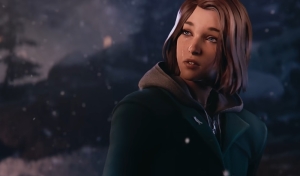
PARIS, Oct 29 — Video game Life is Strange is returning for its latest episode in a saga that broke the mould by having LGBTQ central characters.
Life is Strange: Double Exposure will hit the shelves today just a week before a US election that has underlined a deep polarisation over cultural issues.
Tech billionaire Elon Musk, who has emerged as a key backer of Republican presidential candidate Donald Trump, has specifically criticised video game makers for including diverse characters.
In response to the inclusion of a black samurai in a game, Musk wrote last year “DEI kills art”, referring to diversity, equity and inclusion.
But the makers of Life is Strange embrace their role in celebrating diversity.
“It’s Life is Strange so of course you’re going to have queer people, you’re going to discuss controversial topics and social issues and things like that,” director Jonathan Stauder of Deck Nine Games told AFP.
“It’s like it’s built into the brand.”
“We don’t want to pave the way where if something is woke or political, it doesn’t matter whatsoever,” said Felice Kuan, in charge of the game’s narrative.
“We want to be political. It is political, this franchise is.”
As is customary for popular games — Life is Strange counts some 20 million players since its initial release — the developers have already received online backlash.
Some fans were upset with the choice to bring back Max, the time-travelling heroine from the original edition, and continue her story as a direct sequel 10 years later.
In Double Exposure, she is on the trail of a murderer in different timelines.
“We definitely wanted an older cast with maybe deeper, darker problems,” said Kuan.
French firm Don’t Nod initially developed the game before it was taken up by US studio Deck Nine.
Don’t Nod’s Michel Koch, who was co-creator of the original game but was not involved in the latest one, urged fans to stop sending hateful messages to the developers.
“You can be disappointed, you can want other narratives for those characters you love, or different stories,” Koch wrote on X. “But nothing justifies hating people for how they wrote their game.” — AFP